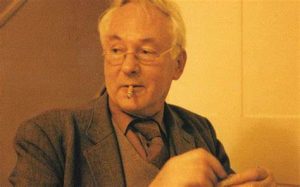The Ups and Downs of Working Freelance: Always Be Aware That Unscrupulous Colleagues Do Poach Other People’s Work
In 1994, during my Ph.D. oral examination, Hamish Miles (1925-2017), the external examiner, asked me why I only had made a brief
reference to Archibald McLellan, whose Old Masters and modern paintings, along with specially-built galleries on Sauchiehall Street,
were the nucleus of Glasgow’s great civic art collection.
I explained to Miles that one of my colleagues, who worked at the Art Galleries at Kelvingrove, was undertaking research on McLellan
and his legacy, and that I chose not to encroach on her research or related projects.
His response was one which took me, and my supervisor, by surprise. Miles said:
“How scrupulous of you not to poach someone else’s work!”
Ever since I began my research, it never occurred to me that ‘poaching’ was an option, yet, as I have discovered over the years, from
personal experience, and issues faced by many of my colleagues in Scotland, and elsewhere, it is more common than one would expect.
Some of most highly-respected individuals in the world of art history, are in fact “poachers”, but it is all-but-impossible for those whose
work has been poached, to do anything about it.
When a colleague informed me that several of the themes in her M.Litt. thesis had been used by her supervisor in his own work, it was
clear she was extremely upset. Of course, he did not refer to the discoveries as being anything but his own. I asked why she did not do
something about it, and her response was quite depressing. She said: “I cannot do anything, as he has too much influence in my area of
expertise, and could prevent me from getting any work in Scotland”. It is hard to believe or accept, but is it is true.
For another example of “poaching”, please see “Taking Liberties at The Burlington Magazine“.
George Fairfull-Smith, August 2022.

